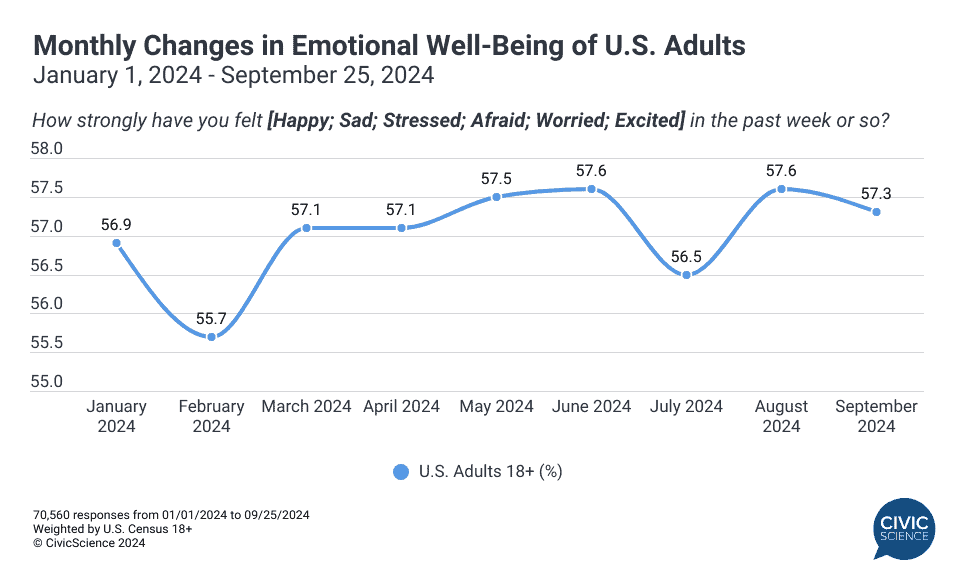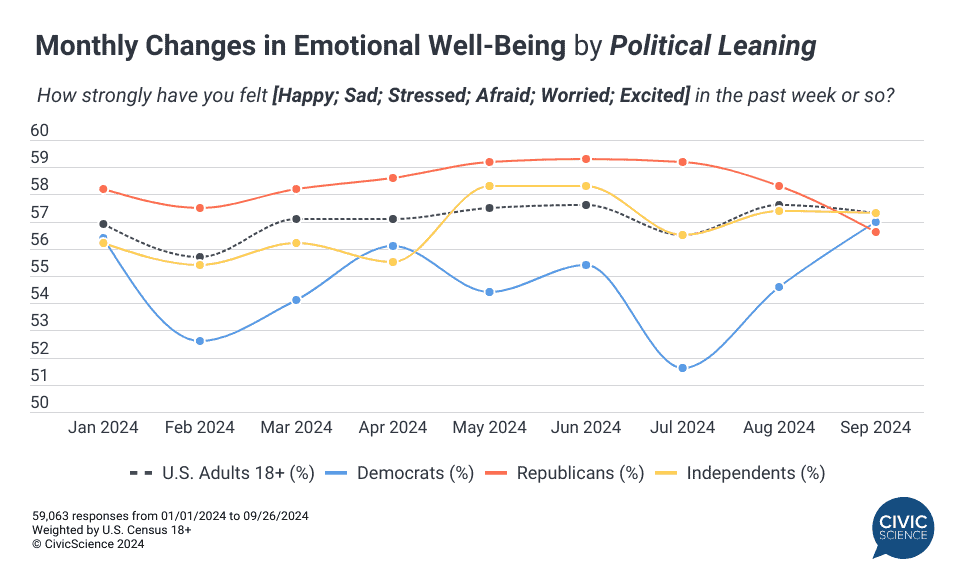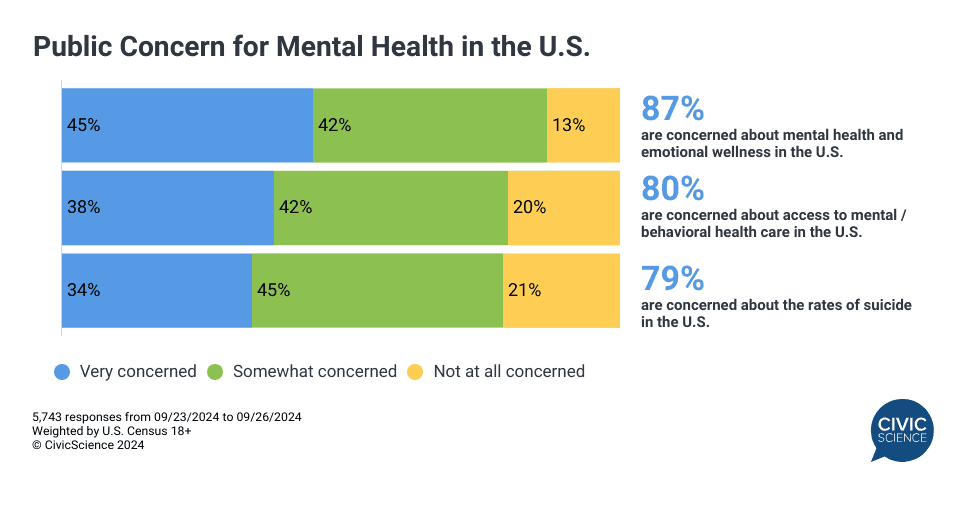This is just a sneak peek at the thousands of consumer insights available to CivicScience clients. Discover more data.
Every month, CivicScience reports on changes in the collective emotional well-being of the nation, a key indicator of many different aspects of consumer behavior. The latest monthly reading of the CivicScience Well-Being Index shows a decline of 0.3 points to 57.3% for the month of September. Year-over-year, well-being rests slightly below (~0.3 points) where it was at this time last year. In fact, well-being in 2024 so far has been averaging lower this year compared to 2023.

Join the Conversation: How is your current state of mental health?
More detailed data behind the monthly score show the largest increases in U.S. adults reporting feeling worry and stress.
This is in part due to the uncertainty of the upcoming presidential election, as seen by the trend lines below. Americans who lean Democrat typically report considerably lower well-being with greater volatility compared to Republican or independent leaning Americans. But since August, those trends appear to be reversing. Republicans’ reported declining well-being month to month, while Democrats’ well-being improved dramatically and rose above that of Republicans for the first time this year. In comparison, well-being among independents has remained fairly stable.
Republicans reported increased stress and worry in September, while Democrats reported significant decreases in those emotions. These changes likely reflect recent events of the race – the nomination of VP Kamala Harris, the presidential debate, and the second attempted assassination of Donald Trump. However, Americans from all sides continue to feel more negative than positive about American politics, and high percentages of Democrats and Republicans are feeling concerned about political violence.

With September being Suicide Prevention Month, CivicScience took a closer look at public attitudes toward mental health and emotional wellness. Recent findings show that nearly 9-in-10 report that they are concerned about mental health in the U.S., with roughly 45% of people feeling ‘very’ concerned. These numbers have largely remained consistent since April of this year.
Overall concern is nearly as high for the nation’s suicide rate (79%) and access to mental/behavioral health care (80%). In the past year, 14% of respondents reported they used mental health helplines or hotlines (such as 988 and Crisis Text Line), while an additional 24% said they would consider using one.1

Let Us Know: How would you rank the availability of mental health care in the U.S.?
Mental health is clearly a top concern among Americans (90% see it as equally or more important than physical health) and the use of mental health resources is on the rise. However, barriers to treatment persist, including cost, insurance coverage, and the stigma of seeking help for mental health needs.
Ready to track trends in real-time, uncover hidden consumer insights, and drive winning market strategies?
- 1,864 responses from September 23, 2024 to September 26, 2024
↩︎








